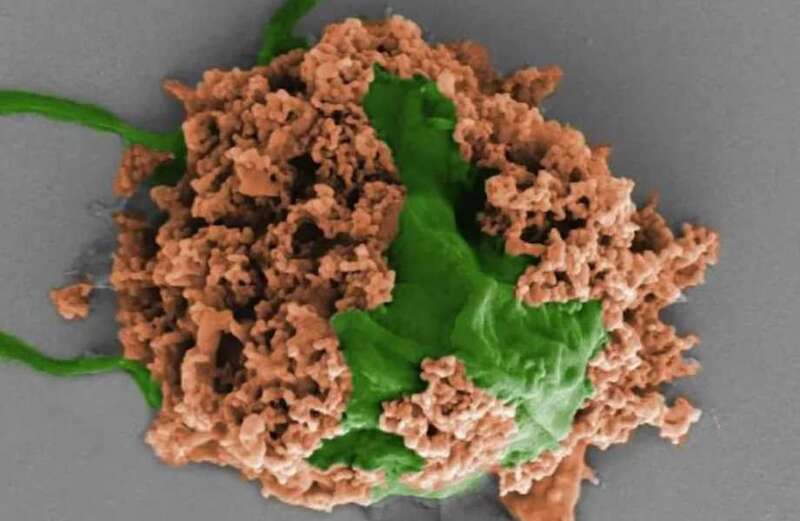TINY robots made from algae could shrink lung cancer tumours and boost survival by 40 per cent, scientists claim.
The pond scum bots swim through the body fluids, delivering chemotherapy directly to the lungs.

Zhengxing Li, from the University of California, San Diego, said: "By more effectively delivering chemotherapy to diseased lung tissues, our biohybrid microrobots significantly improved therapeutic outcomes by shrinking lung tumours and extending survival."
They have only tested it on mice so far, but a new study has suggested the mini machines are more effective than conventional pills and IV drips.
Lung cancer is the UK’s biggest cancer killer, leading to more than 35,000 deaths a year.
 Hospitals run out of oxygen and mortuaries full amid NHS chaos
Hospitals run out of oxygen and mortuaries full amid NHS chaos
Chemo is typically administered through an IV drip or tablet, both of which involve the medicine being carried throughout the body.
But on its way to the lungs, some of the drugs can get lost, meaning not enough reaches to the places needed to destroy tumour cells.
The new algae robots have been created to carry the chemotherapy drug directly to the lungs, which they push deep into hard-to-reach tumours.
They are covered in red blood cells, which act as a natural "camouflage", stopping it from being attacked by the patient's immune system.

The latest study, published in Science Advances, looked at how the new methods of drug delivery extended the lives of mice with cancer.
Mice with melanoma that had metastasised to the lungs were treated with microrobots, which were administered to the lungs through a small tube inserted into the windpipe.
The mice treated with the tiny worm-like devices had a 40 per cent increase in survival time, extending survival from 27 to 37 days.
"The active swimming motion of the microrobots significantly improved the distribution of the drug to the deep lung tissue while prolonging retention time,” said Zhengxing.
“This enhanced distribution and prolonged retention time allowed us to reduce the required drug dosage, potentially reducing side effects while maintaining high survival efficacy.”
This is not the first time algae robots are effective at treating diseases.
 Mystic Mag's 2023 predictions include strikes, sleaze, self pity and separation
Mystic Mag's 2023 predictions include strikes, sleaze, self pity and separation
The same scientists had previously demonstrated that microrobots treated pneumonia in the lungs of mice more effectively than IV injections of antibiotics.
Lung screening is being ramped up in the UK in a bid to catch the disease earlier.
All smokers aged 55 to 74 will be invited for free NHS scans and help with kicking the habit.
Those deemed at high risk will be given specialist scans every two years.
Mobile screening units in car parks will be part of a plan to catch 9,000 more cases early each year.



































